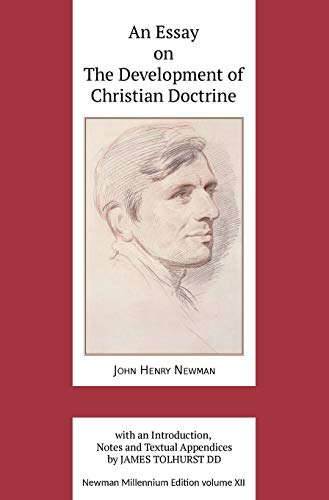What do you think?
Rate this book


John Henry Cardinal Newman begins the Essay by defining how true developments in doctrine occur. He then delivers a sweeping consideration of the growth and development of doctrine in the Catholic Church, from the time of the Apostles to Newman's own era. He demonstrates that the basic "rule" under which Christianity proceeded through the centuries is to be found in the principle of development, and emphasizes that thoughout the entire life of the Church this law of development has been in effect and safeguards the faith from any real corruption.
Ker concludes that, "we may say that the Essay is not only the starting point for the study of doctrinal development, but so far as Catholic theology is concerned, it is still the last word on the subject, to the extent that no other theologian has yet attempted anything on the same scale or of similar scope. . . . But even if the Essay was not one of the great theological classics, it would still be of enduring interest for two reasons. First it is one of the key intellectual documents of the nineteenth century, comparable to Darwin's Origin of Species, which it predates by over a decade. Second, if this were the only book of Newman to survive, its rhetorical art and style would surely place him among the masters of English prose."
634 pages, Hardcover
First published January 1, 1845
The dogmatic principle: ‘That there is truth then; that there is one truth; that religious error is in itself of an immoral nature; that its maintainers, unless involuntarily such, are guilty in maintaining it; that it is to be dreaded; that truth and falsehood are set before us for the trial of our hearts; that our choice is an awful giving forth of lots on which salvation or rejection is inscribed; that "before all things it is necessary to hold the Catholic faith," that "he that would be saved must thus think" and not otherwise.’
The principles that lead to heresy: `That truth and falsehood in religion are but a matter of opinion; that one doctrine is as good as another; . . . that there is no truth; that we are not more acceptable to God by believing this than by believing that; . . that it is enough if we sincerely hold what we profess; that our merit lies in seeking, not in possessing; . . . that we may safely trust to ourselves in matters of Faith; and need no other guide.'